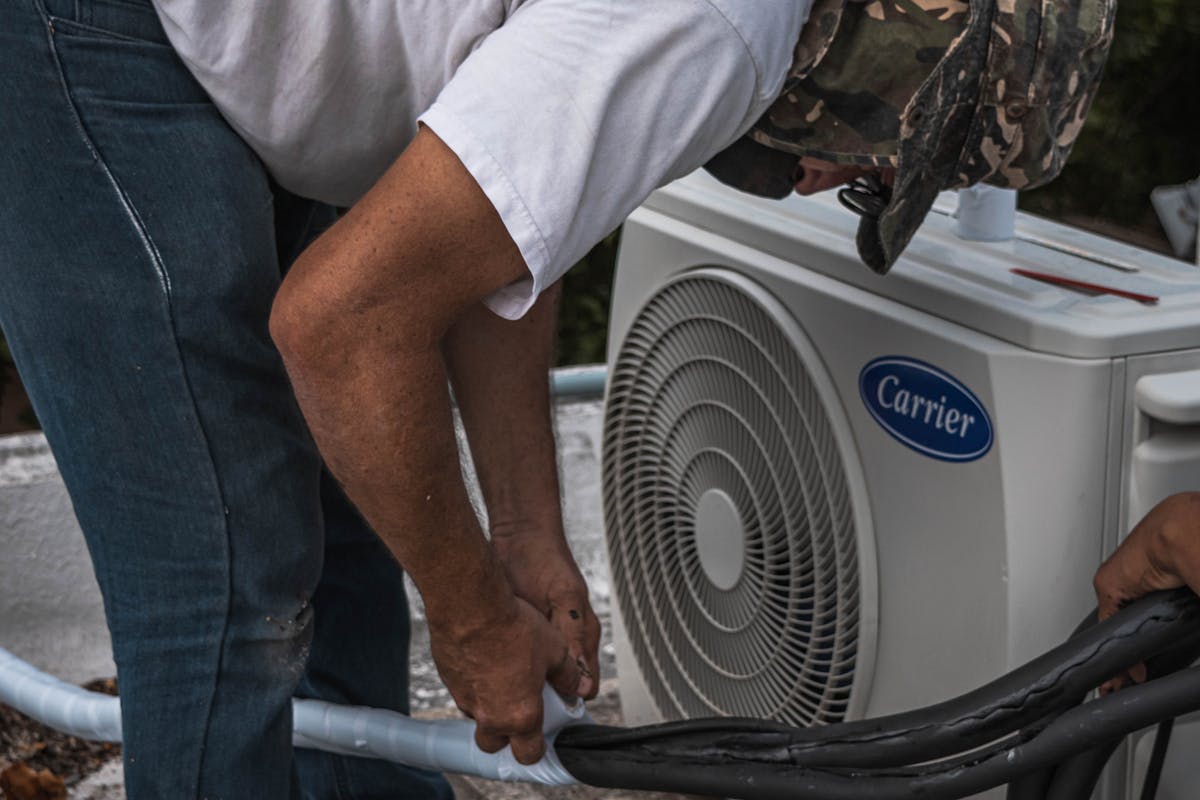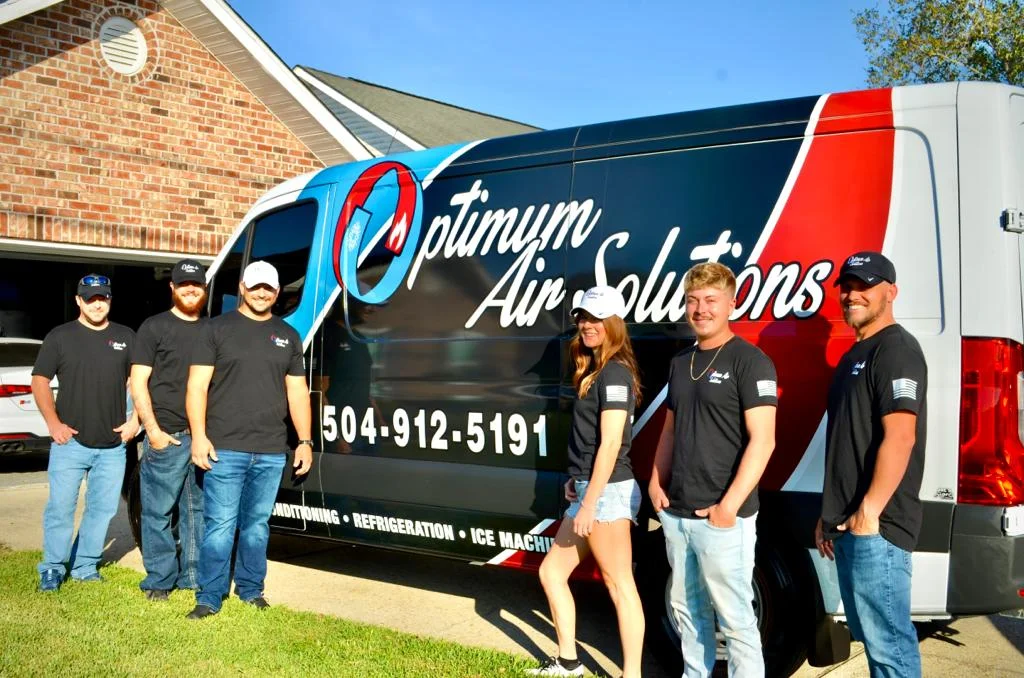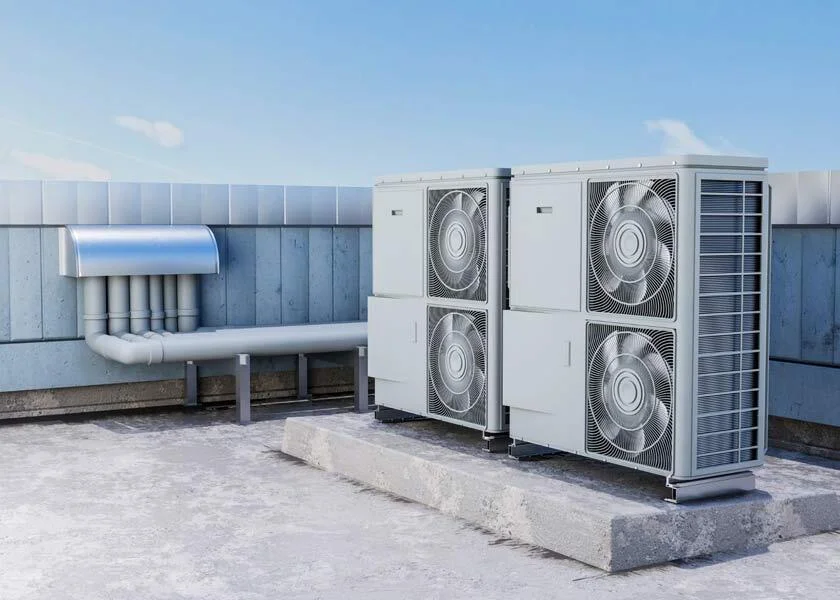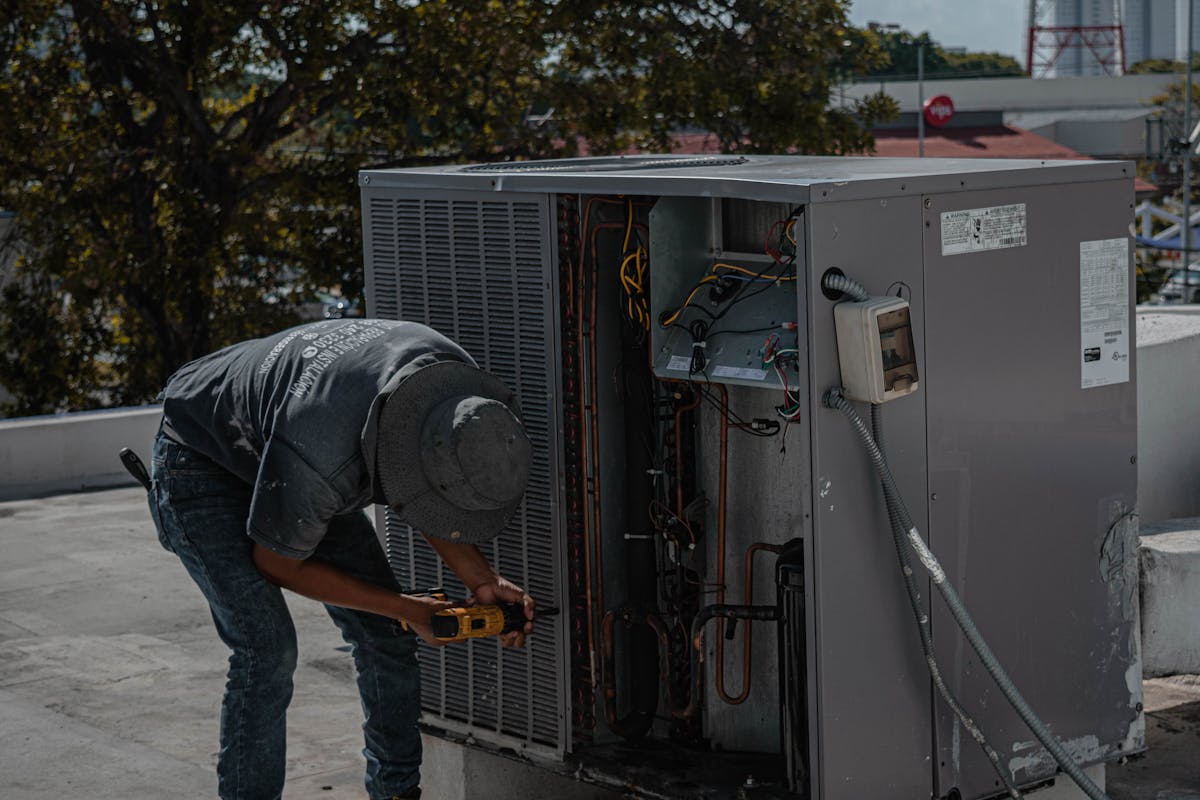
A central air system freezing up is a fairly common problem that homeowners across New Orleans face, especially in the throws of summertime. Typically, when this occurs, the cooling process is disrupted, efficiency is reduced, and more potential damage looms when you leave this problem unchecked.
That’s why today, in this blog post, we’re diving into the causes of freezing in central air systems, how you can prevent them, and some of the best practices you can implement to maintain your cooling system efficiently.
Understanding the Phenomenon of a Central Air System Freezing Up
If your central air system freezes up, usually, it’s a sign of ice forming on the evaporator coils inside the unit. There are a number of reasons this could occur, but the most common of them is inadequate airflow or refrigerant problems. When ice appears on the coils, you can count on some obstructed airflow, which ultimately lessens your cooling power and the efficiency of your system’s operation.
The first indication of a central air system freezing up is the presence of ice on the system’s coils. Next, you might notice that your space isn’t getting cooled as well as it usually does. Inspections are a great way to catch these hiccups. If these problems are neglected, you could be in for much bigger ones like compressor failure.
Primary Causes of Freezing in Central Air Systems
-
Low Refrigerant Levels
So, first things first, you’ll want to check the refrigerant levels. One of the leading causes of your central air system freezing up is low refrigerant levels. The refrigerant in your cooling system is an integral part of the entire operation. It’s responsible for absorbing heat from the air and releasing it outside. If your refrigerant levels have dropped, whether it’s due to leaks or inadequate filling, your evaporator coils can get colder than they need to. This results in the air’s moisture freezing on the coils which obstructs the airflow in your system.
-
Restricted Airflow
Another symptom of freezing in central air systems is the restriction of airflow. If you have air filters that are clogged with dirt, dust, and debris, or blocked vents and closed registers, you could be looking at the prevention of your airflow. If your airflow is restricted, the air moving over the evaporator coils isn’t sufficient enough to keep them from overcooling, which leads to freezing.
To mitigate this issue, it’s important to have your filters changed regularly (typically every 1-3 months). Additionally, you need to be sure that none of the vents or registers are obstructed by your furniture, curtains, etc. A well-maintained system is the key to avoiding freezing.
-
Faulty Thermostat Settings
Without the proper thermostat settings, your central air system freezing up could be a potential issue. If it’s set too low during warm weather will cause your cooling system to run continuously. That can cause your evaporator coils to cool more than necessary and freeze up.
Make sure that your thermostat is always set at an appropriate temperature for your home’s cooling necessities.
-
Malfunctioning Fans
Your air handler or blower fan is essential when it comes to properly circulating air across the evaporator coils. If it malfunctions, the lack of circulation will cause the coils to freeze, which can ultimately lead to decreased cooling efficiency and an increased risk of your home air conditioner freezing up.
Your regular maintenance will help you avoid all of that heartache. Your appointment will include checking the system’s fan’s condition and lubricating all of its parts. Are you noticing some weak airflow? Your fans may be malfunctioning.
Preventing Freezing in Central Air Systems
-
Regular HVAC Maintenance
The best thing you can do to prevent your central air system from freezing up is to schedule your system’s routine HVAC maintenance. During your appointment, you can count on your system being inspected by a professional technician. Your refrigerant levels will be assessed, your coils will be cleaned, and any worn-out parts will be replaced.
Keep your system running at its best and schedule your routine maintenance at least twice a year (once before each peak season).
-
Ensure Proper Airflow
Proper airflow is an integral part of stopping your air coils from freezing. Make sure your air filters are changed regularly so that you always have some good airflow when it comes to circulating through your central air system.
Check out all of your vents and registers for blockages, and get rid of any objects that obstruct air circulation.
-
Optimize Thermostat Settings
If you set your thermostat too low, you’re at risk of your central air system freezing up. Avoiding egregiously low temperatures will be your best friend. When your system is running constantly, it’s important to adjust it by a few degrees to reduce the strain.
-
Upgrade or Maintain Your System’s Components
If all of the components in your air conditioning system are in good shape, you have nothing to worry about. To make sure it’s always running in tip-top shape, make sure that you are getting the necessary maintenance tasks and upgrades conducted. Replace any old and worn-out parts, check the evaporator coils, and clean them regularly.
Now that you know what causes a central air system to freeze up and how you can mitigate the problem, it’s time to take action! Regular maintenance, proper airflow, and proper thermostat calibrations are the keys to avoiding a frozen system.
Need a hand? Give the Optimum Air Solutions team a call. We’ll work with you closely to understand all of your heating and cooling needs, and make sure that your system is running in tip-top shape. Click here to speak with the team!
We’ll have you breathing easy in the Big Easy in no time.
continue reading
Related Posts
There’s a simple truth when it comes to your HVAC
“Efficiency isn’t just about comfort. It’s about cost and resale.”
“An ounce of prevention is worth a pound of cure.”






